by Kavana Ramaswamy, Lawyer and Academic
Kavana Ramaswamy is an Assistant Professor at Jindal Global Law School. She has worked as a Research Associate at the Azim Premji University. She has co-authored a book (The President of India and the Governance of Higher Education Institutions) in 2015, a paper on critical analyses of family law cases at the UK Supreme Court in the Cambridge Journal of International and Comparative Law in 2014 and was involved with the publication of a legal handbook entitled ‘Know Your Rights’ published by School of Women’s Studies, Jadavpur University, India in collaboration with Rosa Luxemburg Stiftung, Germany in 2011. Her areas of interest and specialisation include public international law, legal theory, human rights, queer theory and international humanitarian law.
Our report covers a few of the sessions on some days at QA2018: Bodies X Borders. The report is not an exhaustive overview of everything at the conference and film festival.
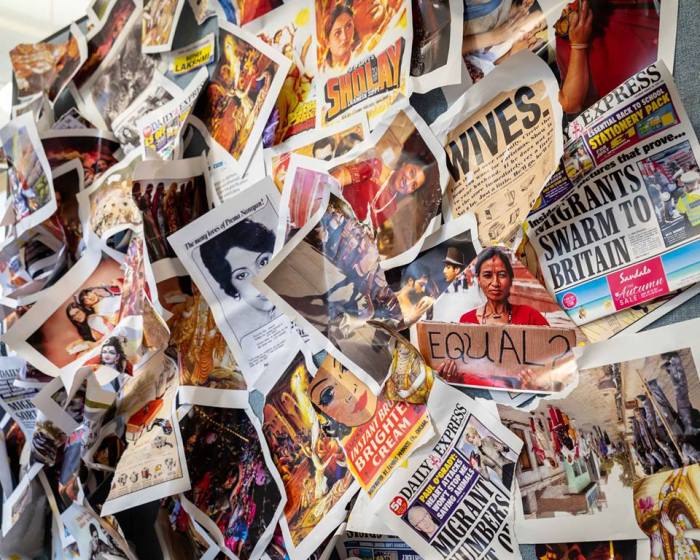
QA 2018: Bodies X Borders took forward ‘Queer’ Asia’s engagement to questions of migration, class, race, and their effects on queer bodies. While the theme directly speaks to issues relating to the migration of queer and Asian people, the conference explored other associated ideas. The conference opened with the keynote panel on 26 June 2018. The panel included Vanja Hamzić, Geeta Patel and Suen Yiu-Tung. Hamzić began the panel discussion with querying the role of the state in minding and monitoring borders: its own and the borders within which people are expected to operate. Arguing that gender non-conforming bodies subvert border regulations and confront the state by crossing them. Suen addressed the issue of immigration control and the lack of recognition of queer relationships by many states. Suen specifically referred to the Hong Kong judiciary’s recent ruling stating that same-sex couples must be granted the same visa rights as heterosexual ones. Suen argued that the loss of family and state support for one’s relationships destroys the sense of belongingness that is essential to most people. Patel’s opening points moved the discussion into an entirely different area of inquiry: biological and microbial boundaries that we regimentally maintain in our everyday lives. Tying this to narratives of colonisation, she highlighted that our everyday language of extermination of germs and bacteria reinforces the narratives of nationalisms that strive to keep populations ‘clean’ and to eradicate contaminations from the ‘other’. Covering several issues , the keynote panel set the pace for the rest of ‘Queer’ Asia 2018 in exploring different boundaries and their impact on queer bodies in Asia and its diasporas.
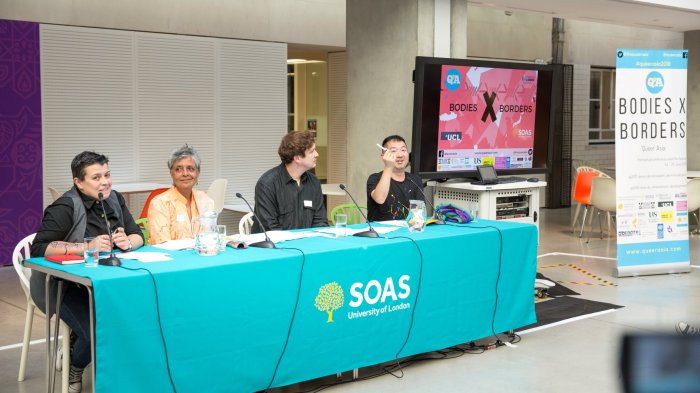
Day 2 of the conference involved several interesting panels and talks. In ‘Sexing the Interstices’, the panelists explored issues of queer existences in highly localised contexts. Preetika (Indian Institute of Science Education and Research, Mohali) spoke about the everyday lives of the Kothis in Chandigarh. She highlighted the nature of the interstices as essential for queer lives: urbanisation tended to impose new borders on morality and queer existence, while urban villages tended to be more permissive of queer existences, albeit nowhere near co-existence. Yuchen Yang (University of Chicago) spoke about cosplay as one of the sites in which gender is necessarily bent and defied. Cosplayers regularly take on characters of different genders, and their portrayal is strictly scrutinised for fidelity regardless of gender. They are expected to perform with fidelity to the character that they are cosplaying, including taking on behavioural traits of such characters. Jaray Singhakowinta (National Institute of Development Administration, Thailand) added to the discussion by presenting a paper on gay television series in Thailand that reinforce masculinities in the community. Xinlei Sha (University of Cambridge) brought in the question of borders with the issue of immigrant women and sex work in Hong Kong. Sabiha Allouche (SOAS) concluded the panel with a presentation on the rise of homonationalistic islamophobia in the First World. Through all three days of the conference, the art exhibition displayed thought provoking pieces from different Asian artists both from the continent and from the diaspora.
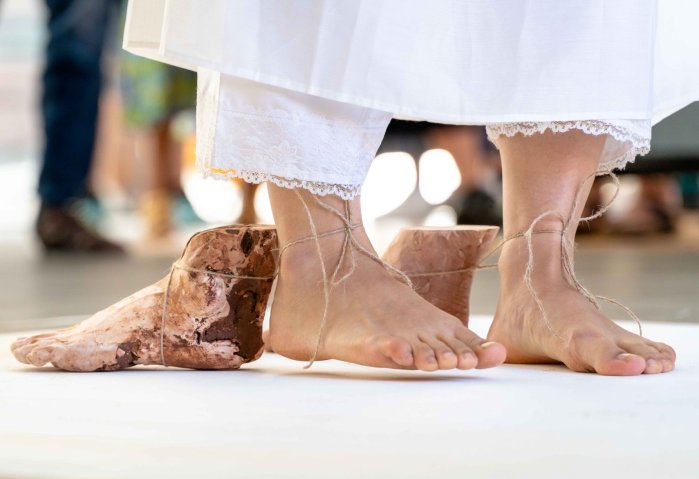
The conference also featured talks and lectures such as ‘Mourning in Diaspora and Narrating Queer Asian Melancholia’ a talk by Dr Wen Liu. Liu spoke of queerness as a way of mourning the traumas of racial colonization. Using the solidarity work with the black lives matter movement that Asian queer diasporas had engaged in to demonstrate the importance of intersectionality in mass movements, Liu described the use of visibility as one of the primary and most successful ways of doing politics in queer communities.
‘Queer’ Asia exceeded last year’s mandate to also host a workshop and feature two plays. Pragati Singh from the group Indian Aces conducted a workshop on the nature of sexuality, the asexuality spectrum, the disconnect of asexuality from sex, and understanding the asexuality movement. The workshop facilitated an understanding of the differences between orientation and behavior, identity and preference, and attitudes and politics. Deftly with the use of questions and cross-questions, the workshop involved active participation by the audience to challenge notions of identity and orientation that are largely prevalent even within queer communities.
One of the plays performed at QA, ‘Contempt’ written by Danish Sheikh, ended the packed day. Written from experiences of arguing the case to the Supreme Court bench which re-criminalized same-sex acts in 2013, the play captures the viewers and forces them to feel the agony and the frustration of having to explain things to who are adamant about not wanting to understand. Placing the stubborn judge (played by Dr. Rahul Rao) in the audience, the play subtly criticizes the masses for being complicit in the continued marginalization and ostracism of queer people in India. Watching the lawyer (played by xx) trying to explain the harassment faced by LGBT+ people to an uninterested judge gave one a taste of the exhaustion of the everyday lives of queer people trying to negotiate their lives in hostile communities.
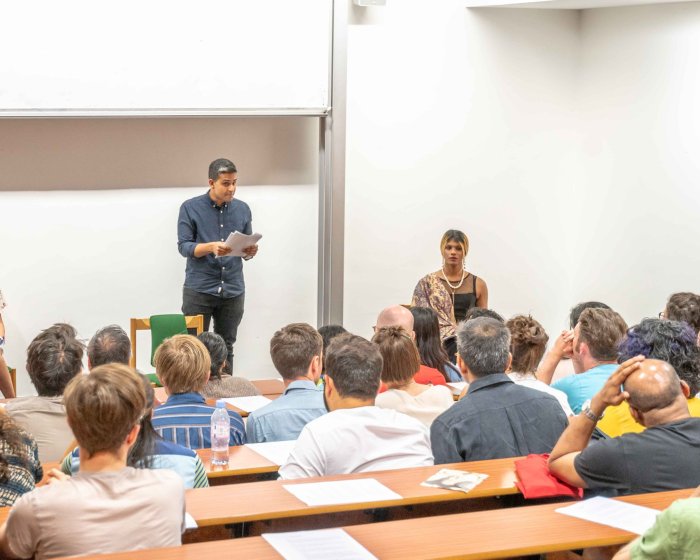
The final day of the conference did not fall short of the enlightening talks and papers that were presented. In ‘Crossing Public Domains: Space, Affect, Othering’, panelists ventured into issues relating to not just the othering of queer people in society, but the othering of classes within queer spaces as a problem that needed to be considered. Queer theory is intended to assert a lack of consistency in identity, rather than reaffirm permanent identities. Ping Hsuan Wang (Georgetown University) spoke about the shock-associated visibility that is generated by the increasing presence of male nudity in Taiwan’s Pride Parade. While the visibility and the rejection of social mores is desirable, these images gain recognizability in the public sphere and can popularize stereotypes of what it means to be queer, or the one notion of how to be gay, which is less desirable. TH Jason Chao (University of Warwick) gave a demonstration of the lack of security in many gay dating apps and urged people in the queer community to be aware of these issues and remain safe in an increasingly porous world. Nour Almazidi, in her presentation, criticized the neo-colonial narrative of western cultural hegemony as the means of saving the brown queer. The glorification of coming out stories reinforces the oppression of the closet. The conclusion of this panel was that there is a need for queer spaces to be more aware of the different oppressions that are invariably perpetuated in popular queer narratives and be more inclusive of those perceived as ‘others’, even within the community.
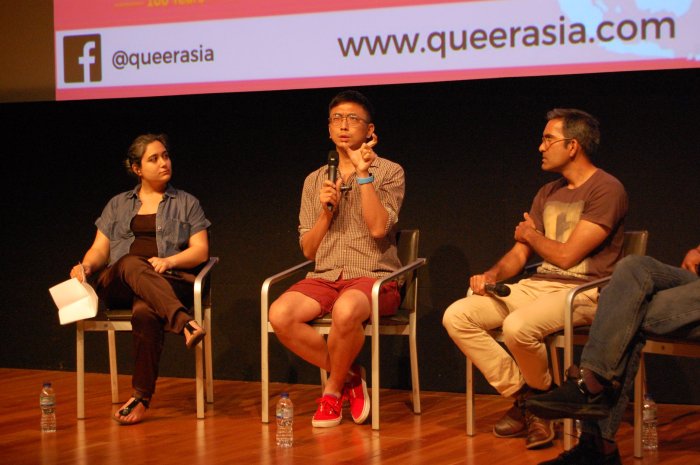
At the film festival, Rama Luksiato’s ‘Crossing Bridges’ continued this engagement with inclusion and othering. The film is a wonderful biopic focusing on Rama’s life as a gay man in Indonesia and Canada. The film highlights the fact that while there is marked homophobia in Indonesia, this problem is also existent in western countries, contrary to popular narratives. Parallels are drawn between the treatment of men’s effeminacy in Indonesia with the treatment of Asians as effeminate in the west. For more reviews on the film festival running from 24th June – 29th June.
Later, towards the end of the conference, several representatives of philanthropic organizations held a roundtable on the funding of LGBT activism in Asia. The panelists emphasized the need for accountability in philanthropic projects and the need to involve the youth in these projects in order to ensure sustainable leadership in LGBT movements and communities.
